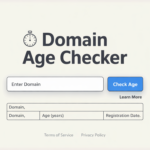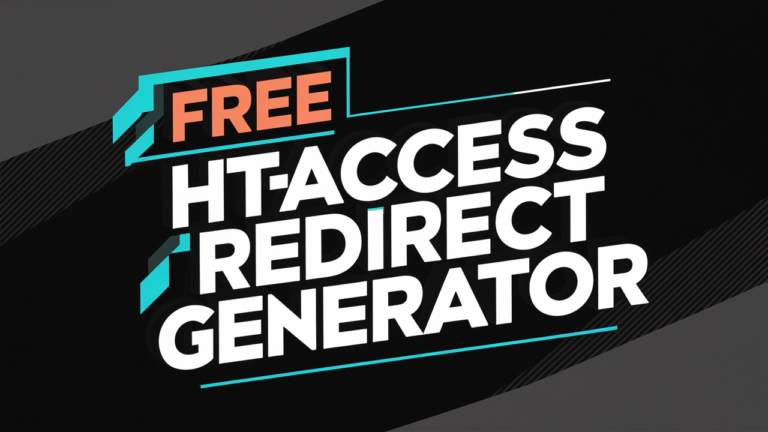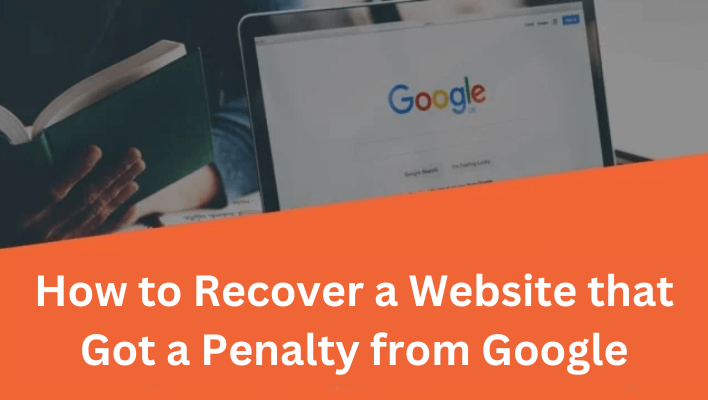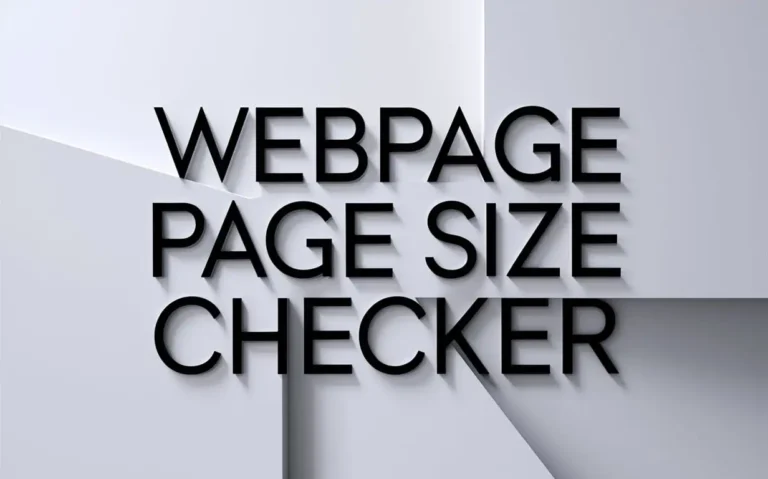How to Easily Create a Privacy Policy: The Free Privacy Policy Generator for Your Needs
In the current digital landscape, having a privacy policy is not merely a legal formality—it’s an essential tool for building trust with users and ensuring compliance with global data protection regulations such as GDPR and CCPA. How can you create a privacy policy quickly and efficiently? The most effective solution lies in utilizing a Free privacy policy generator. These tools provide a straightforward and cost-effective way for businesses to generate a legally sound policy without the need for legal expertise.
Contents
Why Every Website or App Needs a Privacy Policy
A privacy policy is a legal document that outlines how you collect, store, and manage the personal data of users interacting with your website or app. In today’s regulatory environment, failing to provide a proper privacy policy can expose your business to serious legal and financial risks.
For instance, GDPR mandates that businesses collecting data from EU residents must provide clear and comprehensive privacy notices. Similarly, the CCPA requires businesses in California to inform users about the data being collected and how it will be used.
Not only do privacy policies help ensure legal compliance, but they also foster user trust by reassuring them that their personal data is handled with care. A well-crafted privacy policy for your website or app is therefore essential for ensuring transparency and avoiding potential penalties.
Key Features to Consider in a Privacy Policy Generator
When selecting a privacy policy generator, there are several key factors to ensure the tool meets your specific needs. These include:
Customization Options
A comprehensive privacy policy generator should provide customization options to suit the nature of your business. Whether you operate an e-commerce platform, run a healthcare service, or manage a mobile application, the tool should allow you to tailor the privacy policy to address your unique data practices, such as third-party services and data-sharing practices.
Compliance with Legal Standards
An effective generator must ensure compliance with laws like GDPR, CCPA, and others. Look for tools that guide you through creating policies that meet regulatory requirements in different jurisdictions, ensuring that your website or app adheres to applicable legal standards.
Ease of Use and Integration
Choose a generator that is user-friendly and offers seamless integration with your website or app. Most tools will allow you to generate the policy and either copy-paste it directly onto your platform or download it in a compatible format.
Top Free and Paid Privacy Policy Generators
There are both free privacy policy generators and premium options available. Below is a comparison of some of the most popular tools on the market:
| Tool | Free Option | Paid Option | Key Features |
|---|---|---|---|
| TermsFeed | Yes | Yes | Customizable policies, GDPR and CCPA compliance, e-commerce-friendly |
| PrivacyPolicies.com | Yes | Yes | Mobile app policies, integration with websites, GDPR compliance |
| Iubenda | Yes | Yes | Multi-language support, integration with multiple platforms |
| GetTerms.io | Yes | No | Fast and simple, basic templates for small businesses |
How to Use a Privacy Policy Generator
Creating a privacy policy using a privacy policy generator is simple and requires minimal effort. Here is a step-by-step guide:
- Select the Generator: Choose the appropriate tool based on your business requirements. Some offer robust customization options, while others may cater to simpler needs.
- Provide Business Information: Input relevant details such as your business name, website URL, and the type of data you collect (e.g., personal identification details, cookies, payment information).
- Choose Legal Compliance Options: Depending on the generator, select relevant compliance clauses, including GDPR, CCPA, or COPPA.
- Review and Finalize: Once the generator creates the draft, carefully review the policy to ensure it covers all necessary details. Make any necessary modifications.
- Publish and Integrate: Integrate the finalized privacy policy into your website or mobile app. Regular updates may be required to reflect changes in data processing practices.
Industry-Specific Privacy Policies
Certain industries face specific regulatory requirements regarding data protection. Some privacy policy generators offer templates and clauses tailored to these needs:
- E-commerce Websites: A privacy policy for e-commerce websites should cover the collection of payment information, shipping details, and third-party services.
- Healthcare Providers: For businesses in healthcare, a privacy policy for healthcare providers must outline how sensitive medical data is handled, in line with HIPAA requirements.
- SaaS Companies: A privacy policy for SaaS companies should cover the handling of user data, including storage, security measures, and data access.
- Mobile Apps: Apps targeting children must comply with COPPA, which includes explicit consent for collecting data from minors under 13.
Conclusion
A well-written privacy policy is more than just a legal requirement; it is an important tool for fostering trust with users and safeguarding your business from legal liabilities. With the help of a reliable privacy policy generator, you can quickly create a customized policy that complies with data protection laws like GDPR and CCPA.
If you’re ready to get started, choose one of the top-rated tools above, customize it to your business needs, and integrate it seamlessly into your platform. By doing so, you’ll be protecting your users’ data and keeping your business compliant with data privacy regulations.
FAQs
Why do I need a privacy policy?
A privacy policy is essential for legal protection and to maintain user trust. It provides transparency about how user data is handled, collected, and stored, and helps businesses comply with data protection regulations.
Can I use a generic privacy policy template?
While privacy policy templates can serve as a starting point, it’s recommended to use a custom privacy policy generator that tailors the document to your specific business needs and legal requirements.
What happens if I don’t have a privacy policy?
Failing to include a privacy policy can lead to fines, loss of consumer trust, and legal actions, particularly under GDPR or CCPA. In some cases, it may also result in the removal of your website from search engines.
How often should I update my privacy policy?
It’s important to review and update your privacy policy regularly, particularly when there are changes in the way you collect or process user data or when new regulations come into effect.



















